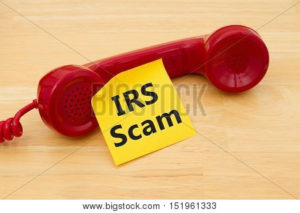Tax identity thieves are paying attention. They listen to the Internal Revenue Service (IRS) warn the public that the agency will not call or send emails to discuss tax issues. Instead, the IRS always first contacts taxpayers via old-fashioned snail-mailed letters.
So, that’s what tax criminals are doing now, too.
In fact, even the IRS confirms that tax scams have evolved. Posing as IRS agents, crooks call taxpayers, threatening them with jail time if they don’t quickly send pre-paid debit cards to cover their “tax debt.” Now that folks are becoming more aware of these scams, tax thieves are mimicking the IRS by faxing or mailing falsified forms.
According to a spokesman with the IRS’ Detroit office, “Taxpayers need to know that scammers have started sending fake documents to trick people into sending money or ‘verifying’ their personal information.”
So, how do you know what’s real – and, more importantly, what isn’t?
First and foremost, real letters from the IRS do not demand that you send its agents or the agency payments via a specific method like a pre-paid debit card. Also, initial written notices allow taxpayers time to rebut or respond to the agency’s request for additional payments.
The IRS will not initiate communications through email and won’t send a message about your current tax standing. If you receive an email from an IRS agent or a link that directs you to a page on the IRS site, do not reply, open any attachments or click on any links.
If you do receive a communication, electronic or written, that looks suspicious and appears to imitate a correspondence from the IRS, immediately call the agency at 1-800-829-1040 to determine whether the agency has a legitimate need to contact you. If the letter is real, the IRS will confirm and provide guidance on the legitimate steps to take to handle your tax issues. If it’s fake, the IRS will want to know so that it can monitor the spread of the latest scam. Additional details on how to report specific types of tax phishing scams can be found at http://www.irs.gov by searching the keyword “phishing.”

